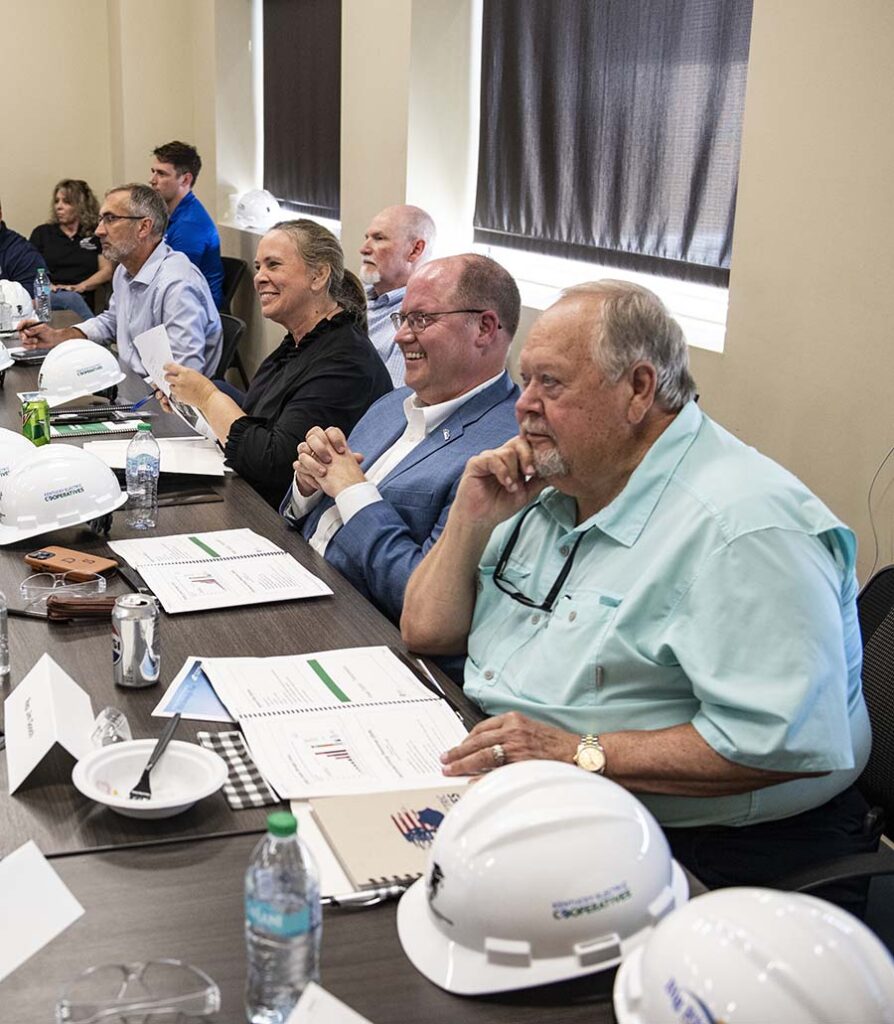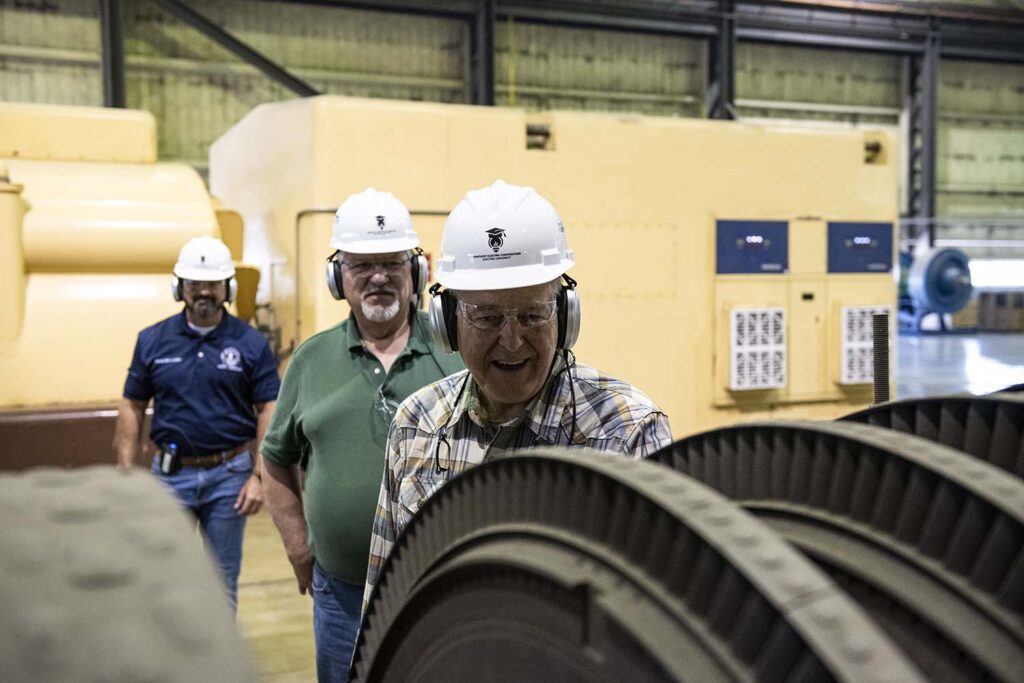
Kentucky state Rep. Wade Williams recently visited a coal-fired power plant for the first time, and it was not at all what he expected.
“I’d heard a lot about coal-fired plants and people would describe them as a huge, dirty, polluting machine,” he said after touring the 1,346-megawatt Spurlock Station plant operated by East Kentucky Power Cooperative on the banks of the Ohio River.
“But when you get there, it’s outstandingly clean. It’s a picture of modern technology. I was really impressed.”
Williams was one of 10 state legislators who took part in the first-ever “Electric University” program hosted earlier this summer by EKPC, Kentucky Electric Cooperatives and Owensboro-based Big Rivers Electric Corp. to educate lawmakers about how electricity is generated, transmitted and ultimately distributed to homes and businesses.
The daylong event took place at EKPC’s power plant, where the elected officials heard presentations from co-op leaders and NRECA instructor Bryan Singletary in the technology center before donning hardhats and goggles to tour the facility.

The lawmakers who attended Electric-U are part of the recently formed Kentucky Rural Electric Cooperative Caucus, which has 96 members—more than any other caucus in the 138-member state legislature. The bipartisan caucus—co-chaired by Williams—is more than twice as big as the Bourbon Trail Caucus, which was formed to help strengthen Kentucky’s most iconic industry.
“When you get larger than the bourbon caucus, that’s really saying something,” said Chase Crigler, government affairs director for the Louisville-based statewide association.
“The reality is that electric cooperatives provide power to more than 1.8 million Kentucky residents and businesses in 117 of the state’s 120 counties. When the legislators go home, they see their co-op members at the store, at church, at the local basketball game. They’re everywhere.”
The fact that there are co-ops in nearly every legislator’s district sparked the idea for the caucus, said leaders of EKPC, which is based in Winchester.
“I was always kind of surprised that the cooperatives didn’t have a caucus when they’re such a force in Kentucky,” said General Counsel David Samford, who came up with the idea along with Jena McNeill, director of legislative and government relations.
“Jena and I worked closely with the legislature’s leadership to get their blessing to establish it. And we worked with Kentucky Electric Cooperatives and Big Rivers to see who we should reach out to. We got about 60 caucus members within just a week or two.”
The main goal of the caucus is to educate members so they can make informed decisions about energy policy, McNeill said.

“We didn’t want to ask them to do a thousand more things than they’re already doing,” she said. “We try to be very selective with what we ask the caucus to do. We don’t ask for anything unless it’s really important.”
But the caucus, formed last fall, has already helped pass three key bills to help co-ops, Samford said. Two were spending bills, including one that appropriated money for state parks to upgrade their infrastructure so that distribution co-ops could serve them more effectively. The third bill—opposed fiercely by investor-owned utilities—creates a process to examine proposed closures of coal-fired generation for impacts to electric reliability and make recommendations to the state’s Public Service Commission.
“Cooperatives’ interests are well-aligned with the people we serve. All we’re here for is to safely provide affordable, reliable power for our owner-member cooperatives to distribute to the end consumer,” EKPC President and CEO Tony Campbell said. “We’re not motivated by profit, and we have no investors to please. The co-op model makes us unique, and the more we can educate legislators about it, the better.”
The Kentucky co-ops plan to make Electric-U an annual event. They also will host regular updates and briefings for caucus members throughout the year.
Toby Moss, president and CEO of Glasgow-based Farmers RECC—one of 16 distribution co-ops that own EKPC—said he got great feedback from lawmakers after teaching them how distribution co-ops work and touring the plant with them.
“I’m proud to say that one of the questions the legislators asked was ‘how can we help?’” Moss said. “I told them, ‘You’re doing it by the fact that you’re here and you’re a member of the caucus.’ It’s a big first step.”
Erin Kelly is a staff writer for NRECA.